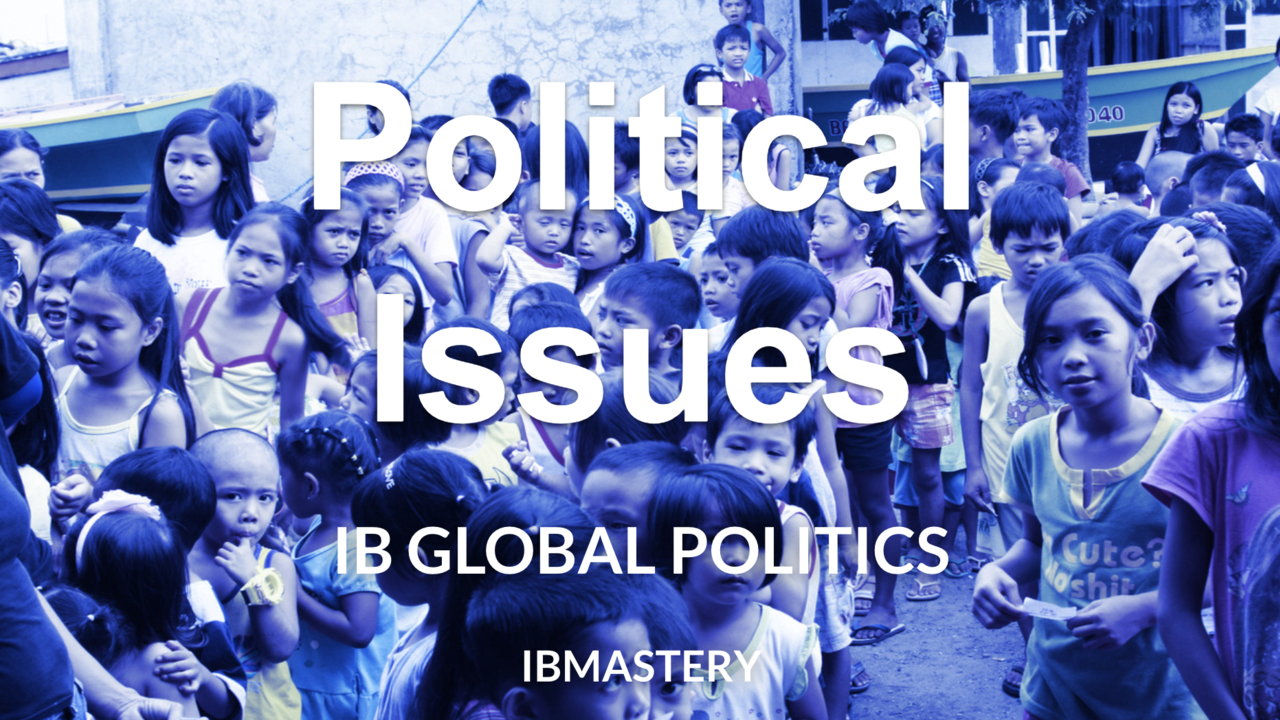Political Issues In Global Politics

In the IB Global Politics course we talk about “political issues”. GP students need to understand what political issues are, but it’s not a simple thing.
You need to identify one for your Engagement Activity, for example. And HL students need to find one in their case studies to develop their oral presentations. The course guide definition is confusing though, so I’m going to clarify it for you.
The IB Definition
The Global Politics course guide defines a political issue as:
“Any question that deals with how power is distributed and how it operates within social organization, and how people think about, and engage in, their communities and the wider world on matters that affect their lives.”
That’s a hard definition to operationalise. One: it’s so long. Two: When you study politics, you see power dynamics everywhere. Almost anything can be explained as a power conflict. But let’s break down this definition before we simply it.
The IB says that a political issue is:
- A question
- About who has power
- About how power works
- About how people involve themselves with others.
Again, i think we need to simplify this definition, if we are actually going to know what we’re talking about.
Our Definition
Here’s the Tim Woods definition, which I think makes a lot more sense. A political issue is:
“A question about who has power and what people are doing or thinking about things that affect them.”
Also, for the record, we want your political issues to contemporary--which means it is “relevant during the student’s lifetime.” This is vague because it is not an event that takes place in your lifetime. It’s simply that it needs to be an event that was significant during your life. And that, could mean just about anything.
Examples of Political Issues
Here are some Political Issues Examples from the course guide (Page 32):
- How does the nature of democracy impact upon representation of women in politics?
- How legitimate and effective are the strategies employed by NGOs in improving women’s rights in country A compared to the legitimacy and effectiveness of an outside military intervention?
- What are the impacts of “voluntarism” on the local and national development of country C?
- What are the strengths and weaknesses of international law, when applied to personal responsibility for war crimes and crimes against humanity?
- How do processes of global politics influence where the products we need in daily life come from and how they are made?
Then what?
Then when you have a political issue, you can:
- Explore it using the 7 areas of the course (i.e. course theories and different levels of analysis)
- Evaluate it (Take your ‘7 Areas’ analysis/insights, synthesise them and draw conclusions)
- Engage with it in some way (i.e. in your engagement activities).
Written by Tim Woods
Tim’s work to support IB students led to IBMastery--the best resources and support for IB students. After 17 years teaching and training around the world, Tim is now available to help you with private tutoring every day. Click here to work with him (i.e. for your Global Politics EA, HL Extension task, or for your TOK essay or Extended Essay).






